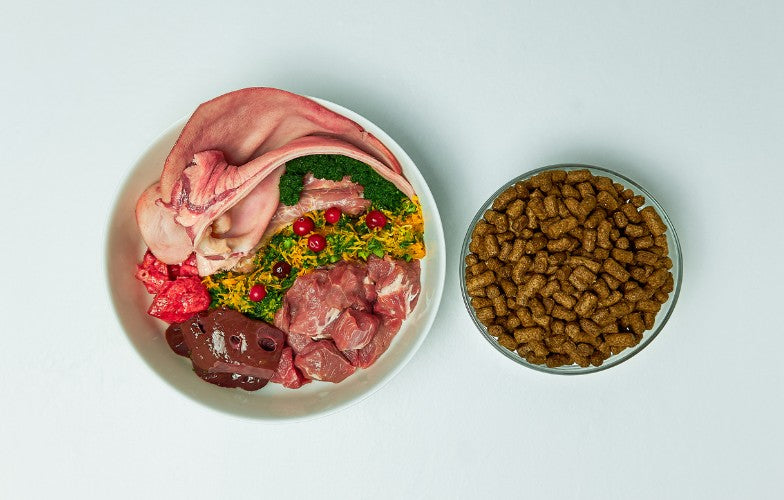from 49€ free shipping in Germany
Your cart is empty
A central focus of the study is the gut microbiome of dogs. This complex network of microorganisms in the digestive tract influences not only digestion but also the immune system and overall health. The "Trust Your Gut" study showed that switching from dry food to a BARF diet causes significant changes in the gut microbiome.

One of the most remarkable findings of the study is the increased bacterial diversity in the gut of dogs transitioning to a BARF diet. Greater diversity generally means a more robust and healthier microbiome. Particularly encouraging is the increase in beneficial bacterial strains such as Lactobacillus and Bifidobacterium, while harmful bacteria decreased.
Your dog's gut microbiome consists of a diverse mix of bacteria, viruses, fungi, and other microorganisms. These little helpers called lactobacilli and bifidobacteria are crucial for digestion, vitamin production, protection against pathogens, and immune system regulation. A balanced gut microbiome is therefore key to a healthy dog. If this balance is disrupted, known as dysbiosis, problems such as inflammation, allergies, and digestive disorders can result.

Another highlight of the study is the anti-inflammatory effect of BARF. The researchers observed a reduction in inflammatory markers in the dogs' blood, indicating a stronger immune system. This is particularly important because chronic inflammation can lead to various health problems in the long term.

Dry food and BARF differ significantly in their composition. Conventional dry food often contains high levels of gluten, preservatives, and synthetic additives. A BARF bowl, on the other hand, consists of raw meat, bones, offal, vegetables, and fruit—foods that are closer to a dog's natural diet.


The longer a dog has been fed dry food and the older it is, the more challenging the transition is for the body. Therefore, the body should be given the opportunity to adjust to the new diet at its own pace. It's also advisable to proceed gradually and not immediately feed the dog a full BARF meal from one day to the next. Feeding bones, in particular, is a special thing that should be introduced to the dog slowly.
Anyone considering switching their dog to a raw diet should listen to their gut and make the switch. We can now say that raw feeding positively alters your dog's gut microbiome, leading to a healthier gut that can absorb more nutrients. This happy population of gut microbes will ensure your dog has a healthier gut, brain, and joints, even in older dogs who are more difficult to feed.
The species-appropriate blend of purely natural ingredients complements the balanced raw diet with vitamins and minerals. Natural nutrients support the microbiome and microflora in your dog's gut through their high bioavailability, as natural foods contain not only vitamins and minerals but also secondary plant substances and enzymes that support the absorption and utilization of nutrients.
An excellent source of calcium, important for your dog's bone and dental health. Feeding ground bones is particularly well-tolerated and can be particularly helpful during the transition from dry food to raw food if your dog is not yet accustomed to raw, meaty bones. Ground bones also promote healthy digestion.
The only blend of high-quality oils that provides your dog with valuable essential omega-3, -6, and -9 fatty acids. These essential fatty acids are effective supportive nutrients and are necessary, among other things, for the absorption of fat-soluble vitamins (A, D, E, K). They also generally increase the bioavailability of certain nutrients, such as carotenoids (precursors of vitamin A) and other fat-soluble phytonutrients. They serve as an important energy source for intestinal cells and stimulate bile production in the liver. The high proportion of essential omega-3 fatty acids can also reduce inflammation.